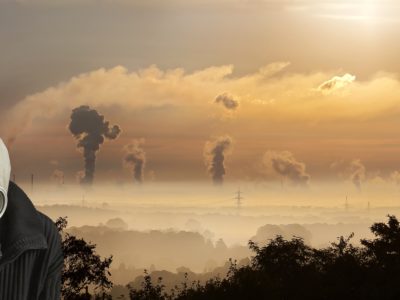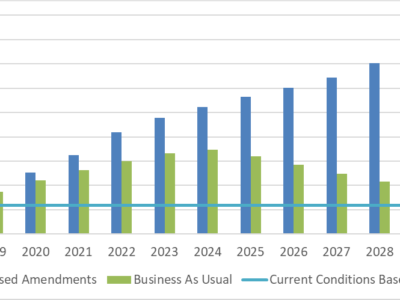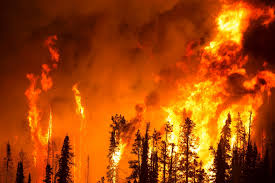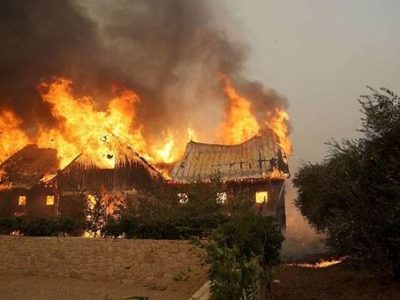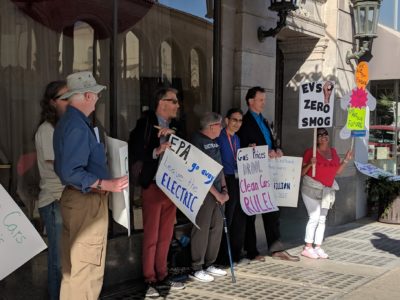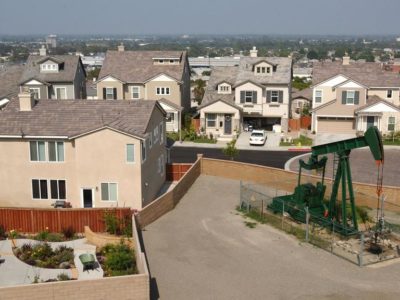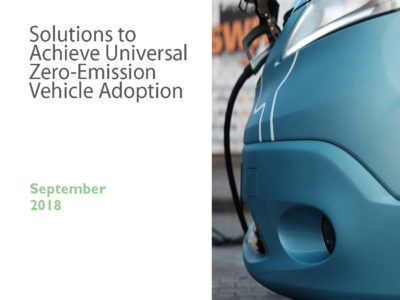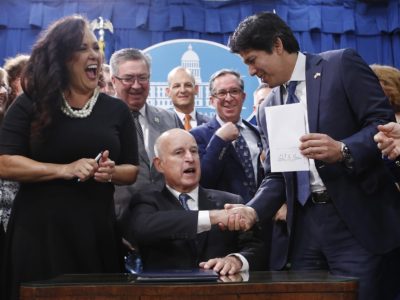California
Trump Administration’s Quiet Policy Change Could More Than Double Hazardous Air Pollution in California
Change in MACT applicability could result in 935 additional tons of toxic pollution emitted by stationary sources in the state each year
Earlier this year, EPA made a major policy change in how the agency evaluates stationary sources of hazardous air pollutants in a memorandum quietly issued without any warning or opportunity for public comment. This policy change was promptly challenged by California and two different coalitions of environmental and community groups (one suit was filed by …
CONTINUE READINGCalifornia Raises Its Ambition for a Low-Carbon Fuel Future
First in a Series About California’s Low Carbon Fuel Standard Program
[Post co-authored by Sean Hecht and Ted Parson] California’s Air Resources Board (CARB) has just enacted new regulations that strengthen the state’s Low Carbon Fuel Standard (LCFS). The LCFS is a major component of California’s greenhouse-gas control strategy, but receives surprisingly little attention, compared to other policies like the statewide cap-and-trade system and the renewable …
Continue reading “California Raises Its Ambition for a Low-Carbon Fuel Future”
CONTINUE READINGBurning in the Heat
Wildfires were bad enough already. Climate change is making them worse.
Fires have been unusually severe lately. According to one scientist, “’[I]n the late 20th and early 21st century, with these hot droughts, fires are ripping now with a severity and ferocity that’s unprecedented,’ says Tom Swetnam. . . . A fire in the Jemez Mountains Swetnam studies burned 40,000 acres in 12 hours, a ‘horizontal …
Continue reading “Burning in the Heat”
CONTINUE READINGMitigating Increased Driving Miles From New Projects Under CEQA
New Berkeley Law/CLEE report released today; Webinar discussion on Tuesday, October 30th
California law now requires developers of new projects, like apartment buildings, offices, and roads, to reduce the amount of overall driving miles the projects generate. Senate Bill 743 (Steinberg, 2013) authorized this change in the method of analyzing transportation impacts under the California Environmental Quality Act (CEQA), from auto delay to vehicle miles traveled (VMT). …
Continue reading “Mitigating Increased Driving Miles From New Projects Under CEQA”
CONTINUE READINGSpreading Like Wildfire
They don’t get as much attention as floods or earthquakes, but wildfires are deadly serious.
This is the first of a three-part series about wildfires. Massive wildfires are a growing problem, posing risks to people and the environment. Considering that my house is located only a few miles from the 1991 Oakland Hills fire, which killed 25 people, destroyed 2800 homes, and caused $1.8 billion in damage, this is an …
Continue reading “Spreading Like Wildfire”
CONTINUE READINGCalifornians Strongly Oppose Rolling Back Clean Car Standards
Day-long hearing in Fresno shows clear opposition to Trump administration proposal
Along with hundreds of others, I traveled to Fresno, California to testify today against EPA’s proposed rollback of vehicle standards. We’ve covered EPA and NHTSA’s legally flawed proposal in a number of previous Legal Planet posts. Today’s hearing started out with NHTSA’s chief counsel accidentally referring to EPA as the “Energy Protection Agency,” but has …
Continue reading “Californians Strongly Oppose Rolling Back Clean Car Standards”
CONTINUE READINGReflections from Climate Conference No. 2: The Global Climate Action Summit
Similarly inspiring, with an added dollop of controversy
Last week’s Global Climate Action Summit in San Francisco was at once exciting, inspiring, thought-provoking, and controversial. While I was reinvigorated to push my career in climate change and environmental law and policy, it also forced me to critically think about the nuances in climate change policymaking. As promised, here is an overview of my …
Continue reading “Reflections from Climate Conference No. 2: The Global Climate Action Summit”
CONTINUE READINGUCLA’s Environmental Law Clinic Files Brief on Behalf of Amici League of California Cities and California State Association of Counties
Brief defends local government authority to regulate oil drilling in face of industry challenge
[Update: The Second District Court of Appeal, Division 5 has rejected all the amicus curiae brief applications filed in this case, including this brief. We will leave this post, and the link to the brief, up on this blog so that anyone interested may see our arguments, but the brief will not be considered in …
CONTINUE READINGAchieving 100% Zero-Emission Vehicles — New CLEE Report Release Today
Report findings to be discussed at Global Climate Action Summit affiliate event in San Francisco today
Some countries and states, including California, are contemplating or making plans for phase-outs or bans on the sale of new internal combustion engine passenger vehicles by a date certain. Berkeley Law’s Center for Law, Energy and the Environment (CLEE) is today releasing the report 100% Zero to offer policy pathways to make such a scenario …
Continue reading “Achieving 100% Zero-Emission Vehicles — New CLEE Report Release Today”
CONTINUE READINGGovernor Brown Signs 100% Carbon-Free Grid By 2045 Legislation + Executive Order Making California Carbon Neutral By 2045
Landmark legislation and executive order to be discussed with State Sen. Kevin de León tonight on City Visions, KALW 91.7 FM at 7pm
As was expected, Governor Brown today signed SB 100 (de León) to put California on a path to achieve a carbon-free electricity grid by 2045. But in a surprise move ahead of this week’s Global Climate Action Summit in San Francisco, he also issued an executive order directing state agencies to achieve statewide carbon neutrality …
CONTINUE READING



